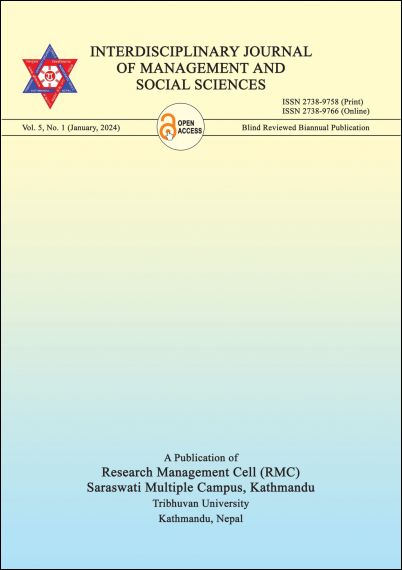Exploring Early Childhood Development Education Through Playful Environment
DOI:
https://doi.org/10.3126/ijmss.v5i1.62659Keywords:
Preschool, Childhood care, Child development, Playful practice, Nepalese education systemAbstract
This study aims to explore the knowledge, attitudes, and behaviors related to early childhood development and education through a descriptive research approach. The educator recognized the significance of establishing environments that are conducive to children's needs and incorporating stimulating activities to foster the growth of young learners. The researchers conducted an assessment of knowledge, attitude, and practices through interviews and conversations. The variables of race, age, and education had a notable influence on the level of knowledge among individuals. Teachers in educational institutions possess a broader range of knowledge regarding school nutrition and health compared to students. The respondents' knowledge, behavior, and perspectives were shaped by a range of factors, such as their educational attainment, occupation, religious beliefs, and racial background. The study findings emphasize the importance of school health, nutrition, and recreation, and recommend that educators, students, parents, and other stakeholders actively promote these aspects. Creating a favorable and supportive learning environment is crucial in the field of Early Childhood Care and Education (ECCE), risk reduction initiatives, Nepal's child-friendly education programs, and the improvement of school environment.
Downloads
Downloads
Published
How to Cite
Issue
Section
License

This work is licensed under a Creative Commons Attribution-NonCommercial 4.0 International License.

